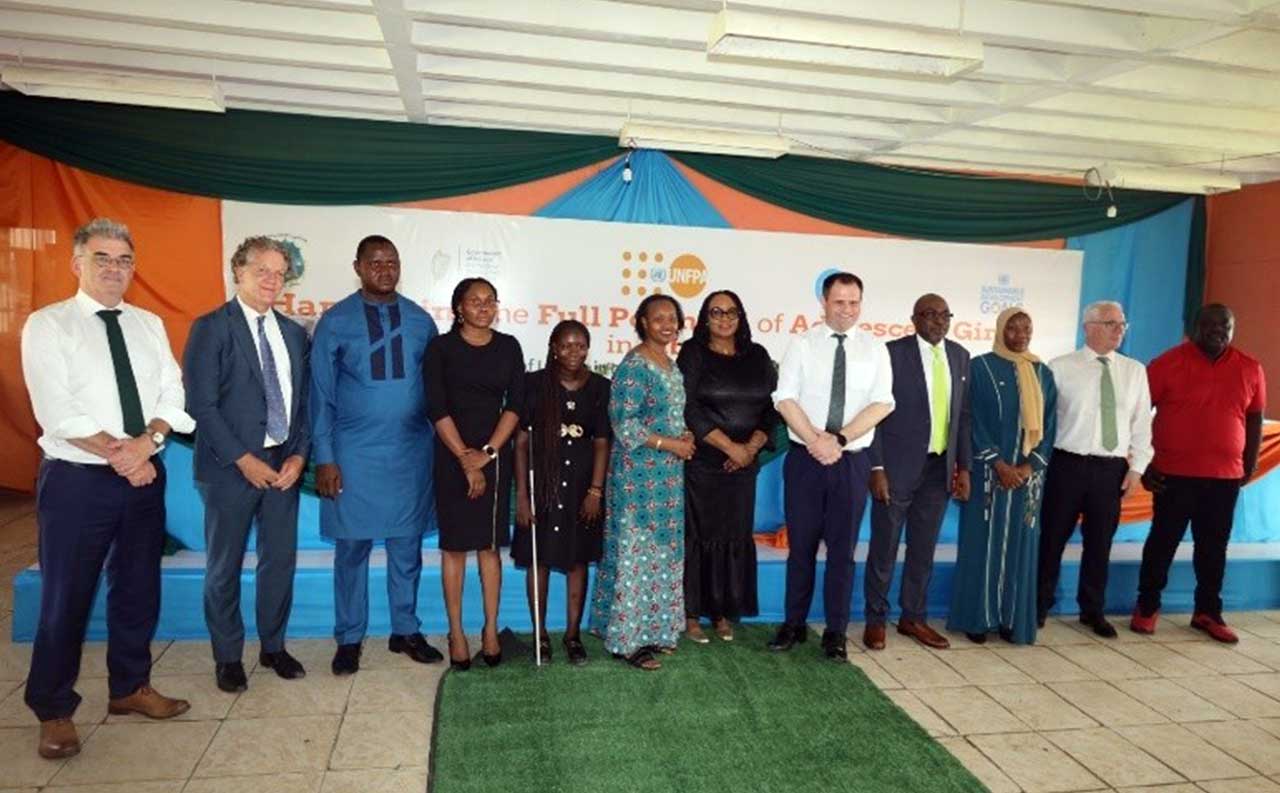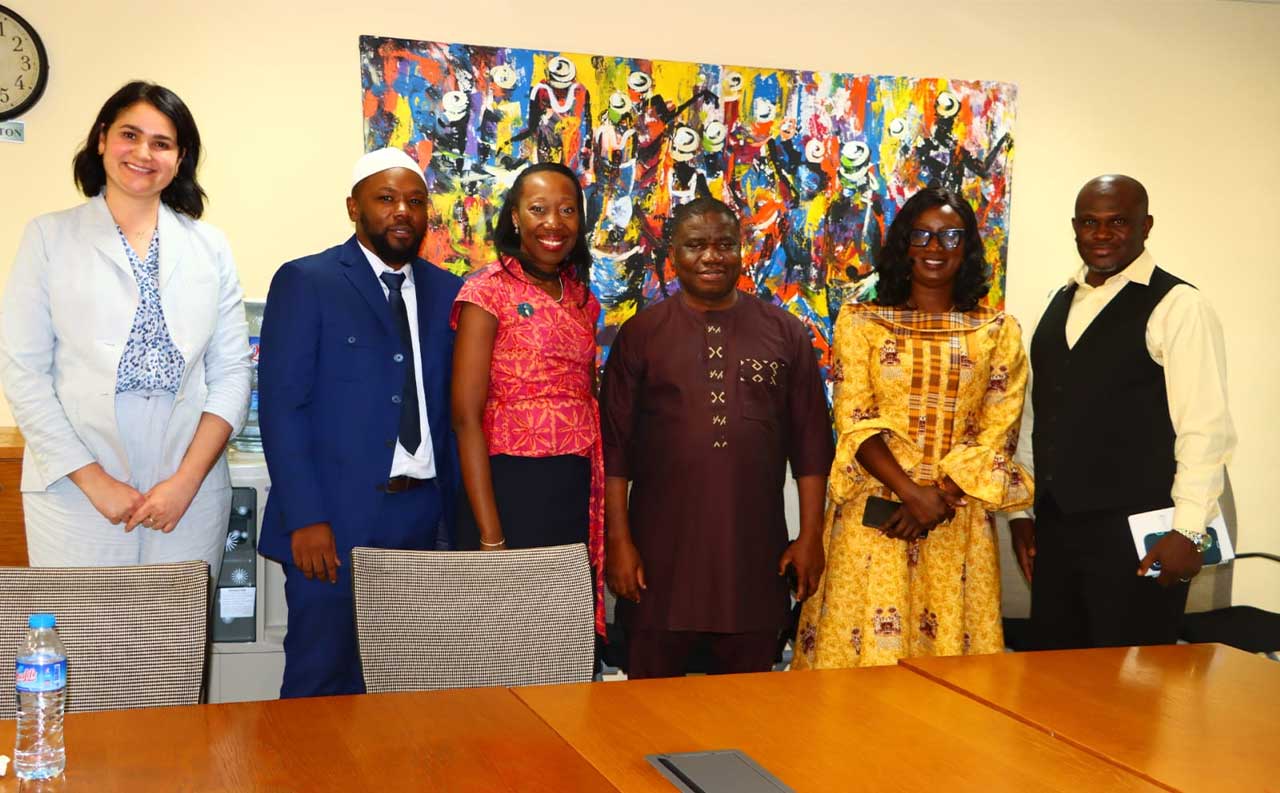The United Nations Population Fund (UNFPA) and the United Nations Children’s Fund (UNICEF) have launched a five-year US$7 million Government of Liberia/ UN programme that will benefit 107,000 adolescent girls in Liberia.
Funded by a US$7 million grant from the Government of Ireland, the initiative will address critical challenges facing girls, including high rates of teenage pregnancy, malnutrition, and limited access to sexual and reproductive health and rights.
The programme, which began in November 2024, will end in December 2029, focusing on three counties, Montserrado, Grand Gedeh and River Cess. The US$7 million initiative aims to create safe and inclusive spaces for adolescent girls, including the most vulnerable and marginalized, to access sexual reproductive health and rights and nutrition services, and build leadership skills to enable them to thrive free from discrimination.
Madam Christine Umutoni, UN Resident Coordinator to Liberia, called on government institutions, development partners, civil society, the private sector, traditional and religious leaders, parents and young people themselves to join hands to build a future where every adolescent girl is safe, confident, informed, and equipped to lead.”
According to her, the UN is committed to working with all stakeholders to realize the goal. Also speaking, Neale Richmond, Minister of State for International Development and Diaspora, Republic of Ireland, emphasized Ireland’s commitment, stating that adolescent girls in Liberia deserve the right to sexual reproductive health, food security, and nutrition.
“Through this programme, we are investing in their futures by tackling systemic barriers like child marriage, malnutrition, and limited access to SRHR. This programme aligns with Ireland’s dedication to gender equality and ensuring no girl is left behind,” he said.
Giving an overview of the program, UNFPA Officer in Charge Leonard Kamugisha described the importance of joint scale-up approaches to improve the situation of adolescent girls in Liberia.
In the same light, Mr. Andy Brooks, Country Representative for UNICEF, highlighted the need to address anaemia as part of efforts to reduce riskier pregnancies and higher rates of stunting in children.
“We have a high teenage pregnancy rate at 30%, which undermines the growth and development of the girl child,” he narrated.
Liberia’s Minister of Health, Dr. Louise M. Kpoto explained that the ministry stands ready to support the programme and ensure it meets its goals to improve SRHR and nutrition outcomes amongst adolescent girls in Liberia.
The programme is centered around two pillars to include Health-Sexual Reproductive Health and Rights (SRHR) and Food Security and Nutrition. The SRHR will focus on enhancing institutional capacities to deliver adolescent-responsive SRHR services through schools, health facilities and community outreach activities.
Food Security and Nutrition will enhance institutional capacities to improve access to food security and nutrition for adolescent girls through a combination of facility and community-based nutrition services to improve the coverage of nutrition interventions.
Additionally, the programme will support the national data system to ensure disaggregated data on adolescent nutrition is available. In addition to the two pillars, the programme will address adolescent girls’ leadership and participation as a
cross-cutting theme: by actively promoting the participation, leadership, and empowerment of diverse adolescent girls, including those marginalized and vulnerable, enabling them to drive change and influence relevant policies. The programme will also work with men and boys to transform social norms that promote gender inequality.



